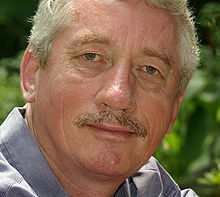Find our Sentientist Conversation on the Sentientism YouTube and podcast.
Frans (fransdewaal.com) is a primatologist & ethologist. He is Professor of Primate Behavior at Emory University, director of the Living Links Center at Emory & the author of many books including “Chimpanzee Politics”, “Our Inner Ape” & “The Bonobo & the Atheist”. He has featured in TV/radio productions & TED talks viewed by tens of millions of people. His research centers on primate social behavior, including conflict resolution, cooperation, inequity aversion, & food-sharing. He is a member of the United States National Academy of Sciences & the Royal Netherlands Academy of Arts & Sciences.
In Sentientist Conversations we talk about the two most important questions: “what’s real?” & “what matters?” Sentientism is “evidence, reason & compassion for all sentient beings.” The audio is on our Podcast here on Apple and here on the other platforms. You can watch the video here.
We discuss:
0:00 Welcome
1:19 Frans’ Intro – Understanding animals
- Ethology, primates, animal behaviour, intelligence & morality
- Breaking out of behaviourism. “We have so much evidence for animal intelligence… these taboos are being broken”
- The ripple effect. Finding remarkable capabilities first in primates, then in many other species
4:05 What’s Real? From Catholic to apathist
- Growing up Catholic & dropping religion at 17
- “My parents were very unhappy but I was part of a generation where everyone was doing that”
- “The Bonobo & the Atheist” & human need for religion
- Apathism… “I don’t particularly care if god exists”
- “In Catholicism & every religion there’s a lot of hypocrisy… people who talk one way & act another”
- Child abuse scandals & cover-ups
- “Jesus was an inspiring figure… whether he’s a real historical figure or not”
- Half of people in the Netherlands call themselves atheists & we see that coming to the USA now
8:48 What Matters Morally?
- Religion & evolution & intuition as drivers of morality
- Religions can provide narratives to support your moral intuitions (e.g. the good samaritan)
- “You cannot go wrong with compassion, morally”
- Studying empathy in non-human animals
- You can’t build a moral system without empathy
- Reasoning & logic, without compassion, can lead to awful harm
- “Empathy & compassion are not human inventions”
- Very young human children & dogs both show compassion to a crying person (Carolyn Zahn-Waxler)
- We find compassion in many non-human animals & that is the basis for human morality too
- The ability to detect sentience in others & to feel affected by it. Roots in maternal care (hence empathy more developed in females)? Oxytocin
- “If you have a co-operative animal society you need to worry about you fellows”
- “Empathy is a very adaptive trait”
- The evolution of sentience as a class of info processing?
- “I read ‘Consciousness Explained’ (Dennett) & I still don’t know what it is”
- We now know some animals can plan ahead
- Sentience as experiencing things. “Certainly all animals with brains… must have experiences because they have bodies that need to react.”
- Plants? Mollusks?
20:50 Human Moral Development
- Empathy can be parochial – restricted to those like us/in our tribe (Oxytocin drives out-group behaviour too). Compassion is more broad minded
- “Be careful with oxytocin”
- Moral development – we have to add to our evolved empathy
- Non-humans & early humans didn’t have a Geneva Convention
- Extending moral consideration to non-human animals
24:49 Who Warrants Compassion?
- Universal Declaration of Human Rights
- “We don’t want indiscriminate compassion – we also want commitments”
- We can’t abandon in-group prioritisation
- Religious & non-religious ways of privileging humans
- We value mammals/cuddliness/attractiveness more highly. “We are very biased”
- We care about dogs in the west but not pigs. Yet there’s not much of a difference
- Struggling with the ethics of working with captive animals (always non-invasively & on a volunteer basis)
- Being surrounded by people who conduct medical research on animals. Can it be justified? Moving to non-invasive, voluntary research
- “People used to be dependent on animal meat… but that equation has changed… it’s not strictly necessary any more”
- “I’m not opposed to eating animals but I object to how the animals that we eat are being treated”
- “As soon as you take people into a pig farm they will notice the problem”
- Showing videos of farm/slaughterhouse conditions when people buy animal products?
- “I eat barely any mammals any more”
- We need to get rid of factory farming
42:52 The Future
- Being less tribal & binary
- “Nature is full of ambiguities”
- “Humans are programmed to be in/out group animals”
- Breaking the species boundary
- “Our empathy is intended for our inner circle of family & friends but we have the capacity to expand it.”
- “We need to put pressure on the philosophers… The philosophers have given us… a philosophy where humans are set apart from the rest of nature”
- “This whole idea that we dominate nature… because we are superior beings… that has given us the climate change problem, the pandemic…”
- “Philosophers have always emphasised human uniqueness. As a biologist, I can tell you, humans are animals”
- Human exceptionalism links back to ideas of the soul & mind/body dualism.
Sentientism is “Evidence, reason & compassion for all sentient beings.” More at sentientism.info. Join our “I’m a Sentientist” wall using this simple form.
Everyone interested, Sentientist or not, is welcome in our groups. The biggest so far is here on FaceBook.
Thanks Graham for the post-production.

